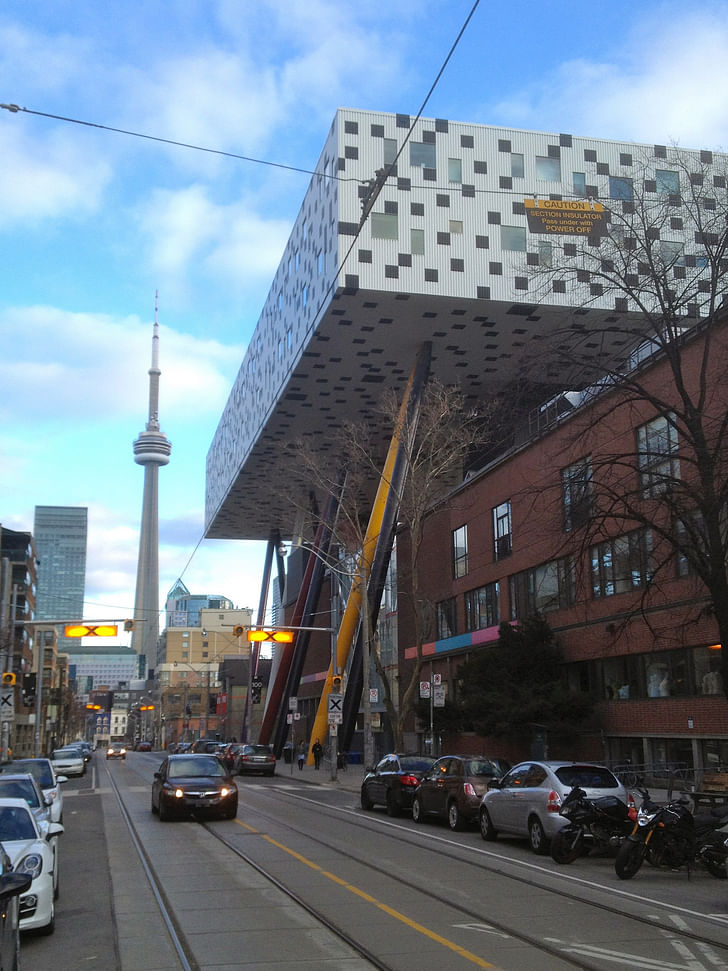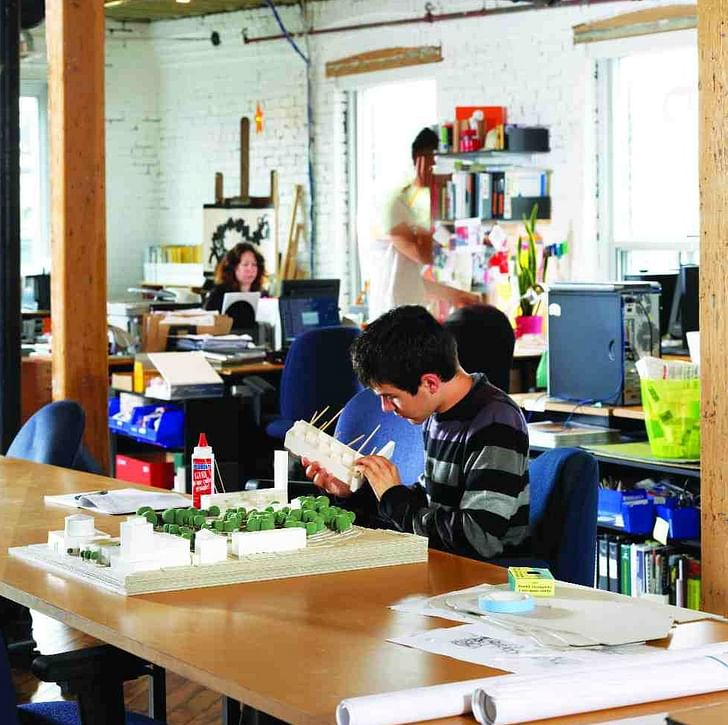

Many people possess itchy feet, but surely none more so than my 21-year-old self, an aspiring architect from the UK with a perpetual hankering for travel and exploration. The combination of a naïve but inquisitive mind, and a growing appreciation for urban environments different from my own, meant that when I reached my interning year I was open to anything – at home or abroad.
Nevertheless, when I arrived at Will Alsop’s office in London, hoping to be secure a couple of weeks’ experience in his Battersea-based studio, I was in for a shock.
“So, where would you like to work? I have three offices – London, Shanghai and Toronto.”
Acting on instinct, with an additional helping of blind panic, I said I didn’t mind – where did he believe I would gain the best experience?

“We have a couple of big projects coming up in Toronto. That could be good for you. Go from March until November; it’s too cold the rest of the year.”
Alsop had spoken. Before I knew it, I was on the train out of London with an eight-month placement in Canada on the horizon. The following year flew by in a blur: it was a veritable baptism of fire as an introduction to architectural practice, but also the most valuable experience of my student life.
it was a veritable baptism of fire as an introduction to architectural practice, but also the most valuable experience of my student life.From an architectural point of view, living in an unfamiliar place heightens your awareness of the surrounding urban environment, leading you to question design conventions you may have taken for granted back home. Collaborating with foreign professionals is also enlightening, bringing to the fore the differing priorities and preferences of those practicing in environments unlike your own.
Now that I am older and undoubtedly uglier, I can bring a sense of perspective to that period – accordingly, here are my key points to consider for architecture students working abroad.
Live It Up
To be happy working abroad, it is crucial to be happy where you live, particularly during those challenging first few weeks. Depending on which country you land up in, the best option for lodging will vary greatly – in my case, I was incredibly fortunate to be hooked up with a room in local university accommodation. This had the unusual benefit of combining a great location in the heart of the city with a very reasonable rental rate, an uncommon coupling in most metropolitan regions around the globe. I was paid by the architecture practice I worked at, but not a lot, so this was vital to me.
It is worth contacting academic institutions local to your upcoming destination, as they may well run affordable living schemes for international students. Another possible avenue is to look into homestays or student swaps – whilst the prospect of living with others is daunting, it offers the chance to become immersed in local culture and gaining a real perspective of everyday life in a foreign country.

Search And Research
It is easy to hold onto the mentality that we should be grateful for any experience we are offered, and this remains true to a certain extent, but it is always worth asking – what kind of internship will prove most valuable to you?
The two big projects Alsop had referred to during my interview turned out to be international competitions: one for the extension to the Asplund Library in Stockholm, and the other for an enormous development in Abu Dhabi. This meant that during my eight-month stint, I did not work on a single project that went on to be constructed – a fact that I now look upon with slight regret.
On the other hand, I learnt about the inherent risks and rewards of competitions within a commercial practice, not to mention working on projects in Europe and Asia whilst working in North America… the variety of professional experience was extraordinary. This issue can affect those interning at home as well as abroad, but regardless, doing your research into global practices and the work currently being undertaken by their regional offices should give you a better idea of what insight you are likely to gain.

Global Practice
Working for an international firm that has a base in your own country – whilst also operating from ‘satellite studios’ around the globe – can form a practical solution for securing an architectural internship abroad. In my case, I was interviewed in London, giving me the opportunity to speak directly to the founder of the practice before setting off across The Pond. I was also able to accumulate the required experience points to obtain my UK-based registration whilst in Canada, as my personal development sheets could be signed off by a RIBA qualified architect.
Whilst I was fortunate in this respect, there are now more multinational practices than ever before, increasing the prospects of a foreign placement should you desire it. It is worth talking Take the opportunity to experience it all ... these events will all be fascinatingly peculiar to their place, and will reveal a lot about the architecture that frames everyday life in that country.to your university professors about your options, particularly regarding which kind of international experience will be accredited by your native registration board and which will not. This way, you can ensure that any globe-trotting you do will count towards your (likely) ultimate goal of becoming a qualified architect.
Culture Shocked
On the surface, a move from the UK to Canada would appear about as gentle a cultural transition as one could imagine. We speak the same language (give or take the odd colloquialism), we operate under similarly liberal laws, and both possess multicultural cities with vibrant local centers. However, day-to-day living revealed fascinating differences, with social, political, religious and cultural practices varying from what I had become accustomed to back home.
Take the opportunity to experience it all, from culinary customs to sporting occasions, art exhibitions, concerts, operas, theatre – whatever you are into, these events will all be fascinatingly peculiar to their place, and will reveal a lot about the architecture that frames everyday life in that country.
Work It Out
Whilst there were pros and cons to my time working abroad, the overall experience was undeniably positive. Most of all though, braving it abroad reflects on your personality. Besides the professional insight you may or may not pick up along the way, the simple fact that you survived the experience will reflect well on you, and prospective employers will take note. It takes persistence and courage – otherwise known as calculated recklessness – and when you finally return home, your resumé will proclaim: I did it. I went far away, and came back unscathed.
Do you feel those feet getting itchy? If so, I urge you: go forth…

A graduate from University College London, having completed the Certificate in Professional Practice and Management to gain RIBA Part 3 qualification. Achieved Parts 1 and 2 at The University of Edinburgh, gaining an MArch in Architectural Design with a distinction, and was nominated for the RIAS ...
No Comments
Block this user
Are you sure you want to block this user and hide all related comments throughout the site?
Archinect
This is your first comment on Archinect. Your comment will be visible once approved.